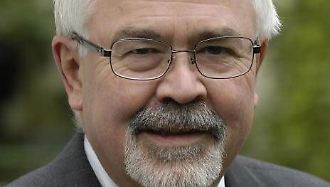Battle of the electric car giants
BYD takes on Tesla
By Helmut Becker
November 26, 2023, 12:07 p.m
Listen to article
This audio version was artificially generated. More info | Send feedback
The sales figures show: Two car manufacturers are ahead of the competition when it comes to electromobility, including German car manufacturers. However, at the same time, Tesla’s top position is shaking tremendously – thanks to an upstart from China.
For over a decade, the US electric car manufacturer Tesla, co-founded by Elon Musk in 2003, was the benchmark in electromobility. Whether battery construction, battery management, range, connectivity or autonomous driving – Tesla showed the rest of the automotive world the taillights. All Western car manufacturers were accused of sleepiness, sluggishness and technical ignorance. They all mutated – especially the German premium manufacturers and VW – into self-proclaimed “Tesla hunters” and invested huge amounts of money in electromobility. And they caught up.
However, they did not reach the person they were hunting. Tesla remained the electric car original still unmatched today. The comparatively high prices, Musk’s many escapades and the spectacular accidents of numerous Tesla vehicles didn’t change this.
On the contrary: Tesla also boomed during the Corona period. The group expanded despite a meager car range of initially only two, now four models. Double-digit growth rates every year. The number of so-called gigafactories grew. With the plant currently being planned in Mexico, there are now six. There should be 20. It has to if Musk’s goal of selling 20 million Teslas in 2030 is to be achieved. An ambitious goal. For comparison: Tesla has sold around 1.3 million vehicles so far this year (until the end of September). The Chinese market leader BYD has around one million units, the VW Group has almost 530,000, SAIC from China has around half a million and Hyundai has around 370,000 units. They are followed by Geely and Stellantis with almost 350,000 and 280,000 electric vehicles.
China is pushing forcefully to the top
However, the ranking makes it clear: it is not the established automobile companies from Germany, Japan or the giants from the USA that are Tesla’s strongest pursuers. Rather, BYD Auto is a car manufacturer from China that is still little known in Germany. Only founded in 2008, BYD is challenging Tesla for global position in the sun when it comes to battery-operated electric cars (BEVs).
BYD only became known in Germany when the group was considered a possible buyer of the Ford plant in Saarlouis. However, the negotiations continue to this day. According to reports, Hungary has better prospects as a location for the first European BYD factory.
Led by China as the lead market, BYD has been the big winner in the rapid BEV market growth in recent years. By the end of 2023, the Chinese industry leader will also be number one in the world. The industry pioneer from the USA is suffering the same fate as the US car giants GM and Ford 40 years earlier, which had to give up global pole position to Toyota and Co.
Chinese success story
BYD had a dual start, initially building both combustion engine and electric cars. Since April 2022, the focus has been solely on plug-in hybrids and pure electric vehicles. Including plug-in hybrids, BYD was already the world’s largest manufacturer of electric cars in 2022.
BYD is quietly and secretly at the forefront of electric cars. But how was that even possible? A look back: BYD first built small cars, then copied various Toyota models. The latter quickly caused a stir because of their better quality than the originals. This was then followed by a wide range of our own models. The breakthrough on the global market came in 2019 with the founding of our own “Global Design Center”, in which European designers took over the reins.
Innovative, more innovative, BYD
In the field of electromobility, BYD is considered one of the most innovative companies – not least due to the market launch of the world’s first electric tractor unit, the first electric articulated bus and the first electric double-decker bus. As early as 2007, BYD, as an automobile company, had more than 2,000 patents on its own developments. At the same time, BYD Auto permanently expanded its research and development centers, where around 10,000 scientists now work at four locations
So far, BYD has had an extremely high level of vertical integration – completely contrary to the industry. The car manufacturer produces most components such as engines, transmissions, control and braking systems, vehicle electronics and the windshield wipers themselves. Only tires, car glass and a few general components are purchased externally. Established suppliers therefore have little or nothing to report to BYD. The prerequisite for this is high sales figures.
Only a matter of time
The battle of the electric Goliaths is in full swing. Tesla is still the largest battery electric car manufacturer in the world, but BYD is getting closer and closer to the US brand. Including its hybrid models, BYD has already overtaken Tesla, because the US car company does not produce such vehicles and is purely electric. BYD is also continuing to expand. In this country alone, the Chinese manufacturer is already planning to sell a total of 120,000 electric cars by 2026.
In addition to research and development, costs are one of BYD’s secrets to success. CEO Wang Chuan-fu is considered a ruthless cost-cutter and is known nationwide in China for his thrift. Wang is now a multi-billionaire who still flies on cheap planes and rolls his own suitcase. However, Tesla boss Musk is also a cost killer.
